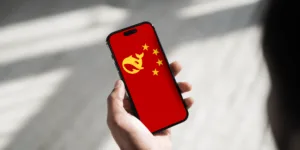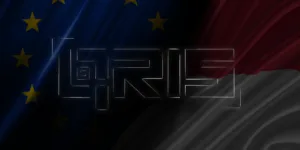Chinese leader’s feel-good trips in Belgrade and Budapest against a backlash from the EU.
Xi Jinping faces two very different versions of Europe. France’s President and the EU Commission President pressed Xi on complex subjects, but visits to Belgrade and Budapest will allow Xi Jinping to leave Europe on a high note, mitigating some of the damage caused to China’s image by deteriorating relations with other EU states.
Xi Jinping faces two very different versions of Europe. France’s President and the EU Commission President pressed Xi on complex subjects, but visits to Belgrade and Budapest will allow Xi Jinping to leave Europe on a high note, mitigating some of the damage caused to China’s image by deteriorating relations with other EU states.
Xi Jinping, Chairman of the Chinese Communist Party and President of the PRC, is visiting Europe between 5 and 10 May. This is the first time Xi has travelled to Europe since the beginning of the COVID-19 pandemic.
Xi’s last trip to the continent in 2019, when he visited Italy and France, happened against a rosy backdrop. At that time, he witnessed the signing of multibillion trade deals, including an order in France for 300 Airbus planes worth 30 billion euros. Xi’s trip to Rome was also fruitful, as he secured Italy’s commitment as the very first G7 state to participate in the Belt and Road Initiative (BRI), Xi’s landmark foreign policy initiative.
New Europe for Xi Jinping
Fast-forward five years, however, and Xi will find a different Europe. What was a win for Xi in 2019 came undone in December 2023 as Italy essentially withdrew from the BRI when it refused to prolong the 2019 memorandum.
In the CEE region, the three Baltic states withdrew from the China-CEE Cooperation Platform (sometimes known as 16+1). These developments are rather symptomatic of the significant souring of views on China across Europe, primarily due to the COVID-19 pandemic and China’s support for Russia in its aggression against Ukraine.
On the EU level, the Commission adopted a handful of new economic security tools, now increasingly used against Chinese companies. Since the beginning of 2024, the EU Commission has gone full throttle, unveiling a new economic security package and leading several new investigations of Chinese companies. Examples include:
- Investigations of subsidies in solar panel, wind turbine, train, and electric vehicle sectors under Foreign Subsidies Regulation.
- Dawn raids of the Polish and Dutch offices of Chinese surveillance equipment producer Nuctech.
- Investigations of discriminatory practices in Chinese public tenders for medical devices under the International Procurement Instrument, which could lead to restrictions on Chinese sellers in Europe unless China levels the playing field.
- Opening of formal proceedings against the social media app TikTok over supposed breaches of the Digital Services Act.
Tough guy Macron?
Against this backdrop, it is evident that Xi’s visit comes at a crucial time in China-Europe relations, as the EU is recalibrating its approach to China, giving increasing focus on matters of economic security and de-risking of crucial dependencies.
France’s Emmanuel Macron has pressed Xi on difficult subjects – ranging from industrial overcapacity in China and other trade distortions, as well as on Ukraine and various ways in which China provides Russia with support (including by trade in dual-use technology, and provision of geospatial intelligence). Through the Paris visit, we should consider four moments:
- A retake for Macron: The current visit comes a year after Macron’s visit to Beijing in April 2023. At the time, Macron reaped substantial criticism over his conciliatory messaging on China, warnings over the EU’s dependence on the US, and articulating the need for the EU to avoid getting tangled in the China-US confrontation. The current meeting allowed Macron to take a correction course, as he avoided playing into China’s hands by using anti-US rhetoric.
- Balancing the EU’s concerns vs. bilateral interests: As with any bilateral meeting with China, tension arises between the need to present a united EU position and promoting a country’s own interests within the bilateral relationship. Despite the blunders of Macron’s 2023 trip, a majorly positive step was inviting EU Commission President Ursula von der Leyen to tag along in a great show of EU unity. Here, Marcon maintains consistency, as von der Leyen was again invited to participate in the talks with Xi Jinping. In Paris, they presented a rather united approach to promoting the EU’s economic security in light of China’s unfair trade practices and weaponisation of economic dependencies.
- Look out for what’s not said: While both economic security and Ukraine are topics of significant concern, it is equally important to take note of which topics are not being raised. Topics like Taiwan, Chinese interference operations in Europe or spying on and sanctioning MEPs are not on the agenda. Not including these topics in the debate was a mistake. Over the past four years, Taiwan has emerged as a reliable partner for Europe in various agendas, including the crucial need to diversify global semiconductor supply chains. As Europe heads to EU Parliamentary elections, Chinese attempts to meddle in the elections must be discouraged to maintain electoral integrity and safeguard European democracy.
- Battle of narratives on Ukraine: Europe and China present competing viewpoints on the Russian war of aggression against Ukraine and the conditions under which hostilities should be ceased. In February 2023, China presented its 12-point policy paper on “political settlement of the Ukrainian crisis.” While Macron pressed Xi to limit support provided to Moscow, Xi attempted to convince Macron that China has the right formula for resolving the conflict. Given that China’s ‘peace plan’ is unabashedly pro-Russian. Available sources indicate that Macron managed to navigate this battle of narratives and avoided paying lip service to China, which would be detrimental not just to Ukrainian defence efforts but ultimately to wider European security.
Feel-good visit to Belgrade and Budapest
Comparatively, Xi’s visits to Belgrade and Budapest will look like feel-good trips, given that Serbia and Hungary are Beijing’s staunchest allies in Europe. China-friendly positions of Prime Minister Orbán and President Aleksandar Vučić will allow Xi Jinping to hit back against China-critical policies being adopted in Europe while at the same time painting a picture of Europe’s lacking consensus on China, even though both Hungary and Serbia are outliers in their pro-Chinese views. This will allow Xi to leave Europe on a high note.
Presenting Hungary as a success story of economic collaboration with China will be crucial for Xi. Such an image would aid in mitigating some of the damage caused to China’s image by deteriorating relations with other EU states, symbolised by the already mentioned withdrawals of Italy from the BRI and Baltic states from the China-CEE platform (itself a component of BRI).
Hungary has recently received large-scale investments from China in the EV and battery sectors worth several billion euros. New investments in the automotive sector are expected to be announced during the trip. Hence, it is no surprise that the Hungarian government opposes the EU’s investigations into the EV sector and various distortions introduced by China.
New infrastructure projects are also expected to be announced during Xi’s visit.
Chief among them is the V0 railway ring that would allow cargo trains to bypass Budapest and a new high-speed line connecting Budapest with the Ferencz Liszt International Airport. This would be a critical addition to the Budapest-Belgrade railway, a flagship project of Sino-Hungarian and Sino-Serbian cooperation.
However, the project has been marred by many controversies surrounding its lack of transparency, unattractive financial conditions, involvement of Hungarian oligarchs in the project, breach of EU procurement rules, and inability to comply with European safety standards.
Serbia, the only non-EU stop on Xi’s itinerary, also expects to see the announcement of new projects to be delivered by its “ironclad” friend. However, symbolic aspects of the visit will be far more interesting to observe. Xi’s visit coincides with the bombing of the Chinese Embassy in Belgrade by NATO forces during the Kosovo War. Regarding Kosovo, China is among the most important Allies to Belgrade as it consistently maintains support for Serbia’s sovereignty and territorial integrity.
The anniversary of the Embassy’s bombing will provide a platform for both sides to reiterate their positions and push back against the West. For China, this will be an opportunity to condemn NATO and its perceived expansion to the Indo-Pacific region in light of strengthening relations with Australia, New Zealand, Japan, and South Korea. This will be a valuable point for China in its attempts to present an alternative global governance system that is not dominated by Western states.
At the same time, both visits send a clear message to China’s other partners in and outside of Europe – when you are good to China, Xi Dada (Uncle Xi) is going to be good to you.
Trajectory of Europe-China relations will remain unchanged
The visits to France, Serbia, and Hungary will provide Xi Jinping with ample materials showing him as a respected global leader. That’s a treasure trove for Chinese domestic propaganda, which has been working overtime in recent years to promote a personality cult of Xi Jinping and downplay domestic economic woes.
Regardless of small symbolic wins, we can hardly expect that the visit will change much in how Europe approaches the challenges brought about by China, despite views of outliers like Serbia, Hungary and, increasingly, Slovakia. The current course of action, grounded in the “China as partner, competitor, and rival” triptych, is here to stay, with the “competitor” and “rival” components becoming more prominent.
Ultimately, the fate of the “partner” component lies mainly in China’s hands since such an approach requires credible commitments from both sides. Beijing has failed to do so, to its own detriment. Significant changes are not expected.
The article was originally published by Visegrad Insight.







